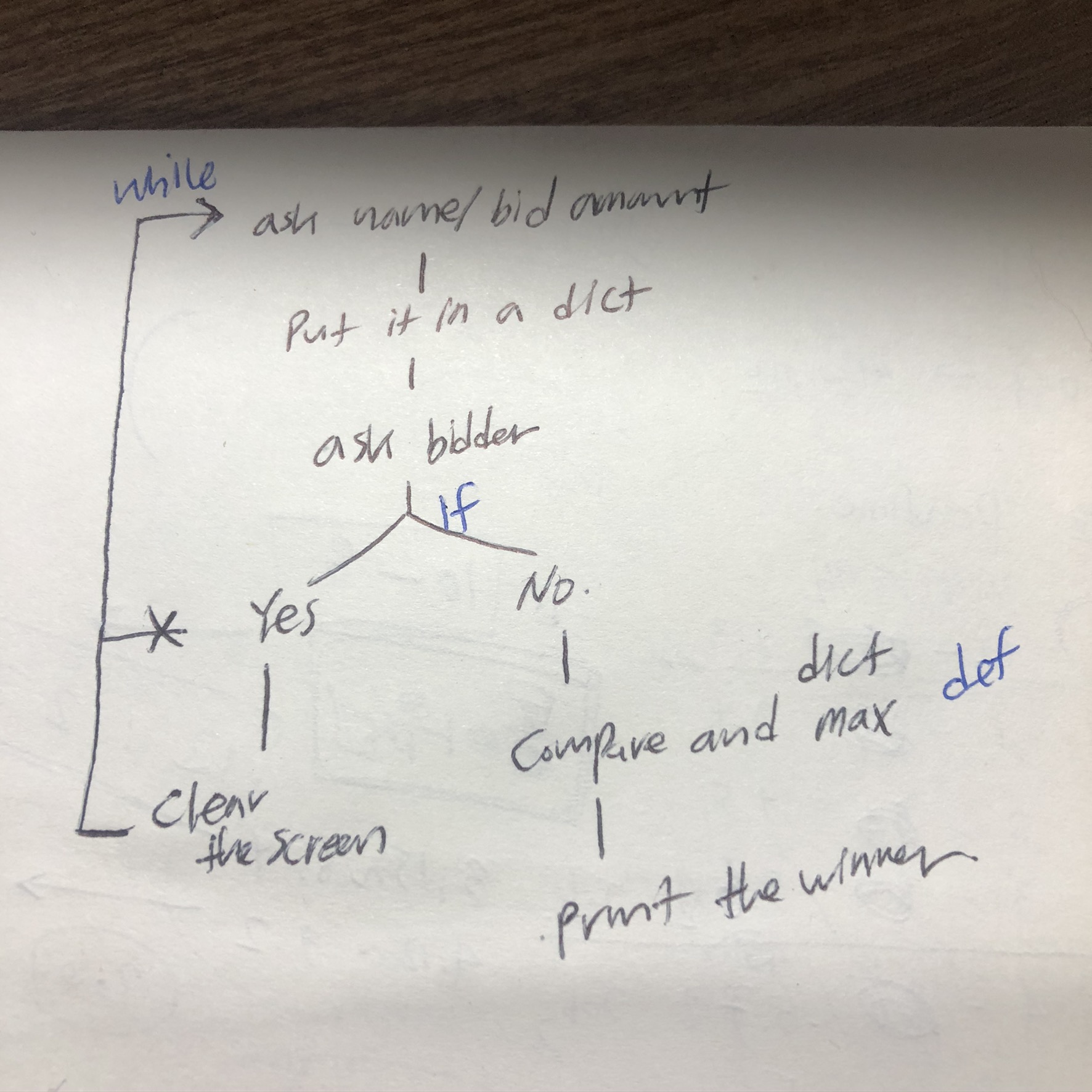TIL: Python Basics Day 8 - Functions with Input: Arguments & Parameters
Udemy Python Course
Functions with Input: Arguments & Parameters
Handy way taking set of instructions. By packaging all the codes in one function.
def greet(name): # -> parameter
print(f"Hi {name}") #-> argument
print("How are you?")
print("Thanks")
greet("Angela")def greet(name): Parameter, the name of the data that's being passed in.
greet("Angela"): Argument, "Angela" inside the parentheses, the actual value of the data.
Positional Arguments
Simply adding with comma. If you switch around the orders, it won't match as you expected it would be.
def greet_with(name, location):
print(f"Hi {name}, are you from {location}?")
greet_with("D", "Seoul")Keyword Arguments
def greet_with(name, location):
print(f"Hello {name}")
print(f"What is it like in {location}?")
greet_with(location="London", name="Angela")Even though the order of the parameter has changed, by using keyword arguments, it assigns the argument in the right position.
Excercise 8.1 Paint Area Calculator
import math
def paint_calc(height, width, cover):
num_of_cans = math.ceil((test_h * width)/cover)
print(f"You'll need {num_of_cans} cans of paint.")
#Write your code above this line 👆
# Define a function called paint_calc() so that the code below works.
# 🚨 Don't change the code below 👇
test_h = int(input("Height of wall: "))
test_w = int(input("Width of wall: "))
coverage = 5
paint_calc(height=test_h, width=test_w, cover=coverage)Exercise 8.2 Prime Number Checker
Prime numbers are numbers that can only be cleanly divided by itself and 1. Can't be broken to smaller part than 1 or itself. e.g. 1, 2, 3, 5, 7
I gave up on it this time. I will come back to this exercirse soon tho.
Project: Caesar Cipher Program
- .index(value) works for both list and string. e.g. print(alphabet.index('h'))
- Angela tackled the 'out of range' problem by copying and pasting the alphabet list two times, however, by using 'modulo' such as '% len(alphabet)' It also solves the problem. -> I don't need to count the number!!!
step1
alphabet = ['a', 'b', 'c', 'd', 'e', 'f', 'g', 'h', 'i', 'j', 'k', 'l', 'm', 'n', 'o', 'p', 'q', 'r', 's', 't', 'u', 'v', 'w', 'x', 'y', 'z']
#direction = input("Type 'encode' to encrypt, type 'decode' to decrypt:\n")
#text = input("Type your message:\n").lower()
#shift = int(input("Type the shift number:\n"))
#TODO-1: Create a function called 'encrypt' that takes the 'text' and 'shift' as inputs.
def encrypt(plain_text, shift_amount):
#TODO-2: Inside the 'encrypt' function, shift each letter of the 'text' forwards in the alphabet by the shift amount and print the encrypted text.
#e.g.
#plain_text = "hello"
#shift = 5
#cipher_text = "mjqqt"
#print output: "The encoded text is mjqqt"
cipher_text = " "
for letter in plain_text:
position = alphabet.index(letter)
new_position = (position + shift_amount) % len(alphabet)
cipher_text += alphabet[new_position]
print(f"The encoded text is {cipher_text}")
encrypt("zulu", 5)step2 : combining two def()-function in one
- I had to recap the keyword argument part as it was so confusing!! I was able to differentiate Parameter and Argument after I figured out that 'input variables' in this project made things more confusing. Input variable was Argument at the same time. After I wrote seperate lines of test code, which stated under #TODO-1 line, things got clearer.
- Angela simplified 'if' statement into two lines of code by using 'shift_amount *= -1' logic. I gotta learn this little tweak from her code.
alphabet = ['a', 'b', 'c', 'd', 'e', 'f', 'g', 'h', 'i', 'j', 'k', 'l', 'm', 'n', 'o', 'p', 'q', 'r', 's', 't', 'u', 'v', 'w', 'x', 'y', 'z', 'a', 'b', 'c', 'd', 'e', 'f', 'g', 'h', 'i', 'j', 'k', 'l', 'm', 'n', 'o', 'p', 'q', 'r', 's', 't', 'u', 'v', 'w', 'x', 'y', 'z']
direction = input("Type 'encode' to encrypt, type 'decode' to decrypt:\n")
text = input("Type your message:\n").lower()
shift = int(input("Type the shift number:\n"))
#TODO-1: Combine the encrypt() and decrypt() functions into a single function called caesar().
#direction = "decode"
#text = "mjqqt"
#shift = 5
def caesar(input_text, shift_amount, input_direction):
new_text = ""
for letter in input_text:
position = alphabet.index(letter)
if direction == "encode":
new_position = position + shift_amount
elif direction == "decode":
new_position = position - shift_amount
new_text += alphabet[new_position]
print(f"The {input_direction}d text is {new_text}")
#TODO-2: Call the caesar() function, passing over the 'text', 'shift' and 'direction' values.
caesar(input_text = text, shift_amount = shift, input_direction = direction)
#------------------------------------------------------------------------
#<Angela's code>
def caesar(start_text, shift_amount, cipher_direction):
end_text = ""
if cipher_direction == "decode":
shift_amount *= -1
for letter in start_text:
position = alphabet.index(letter)
new_position = position + shift_amount
end_text += alphabet[new_position]
print(f"Here's the {direction}d result: {end_text}")
#TODO-2: Call the caesar() function, passing over the 'text', 'shift' and 'direction' values.
caesar(start_text=text, shift_amount=shift, cipher_direction=direction)
Flow Chart for Auction Program
